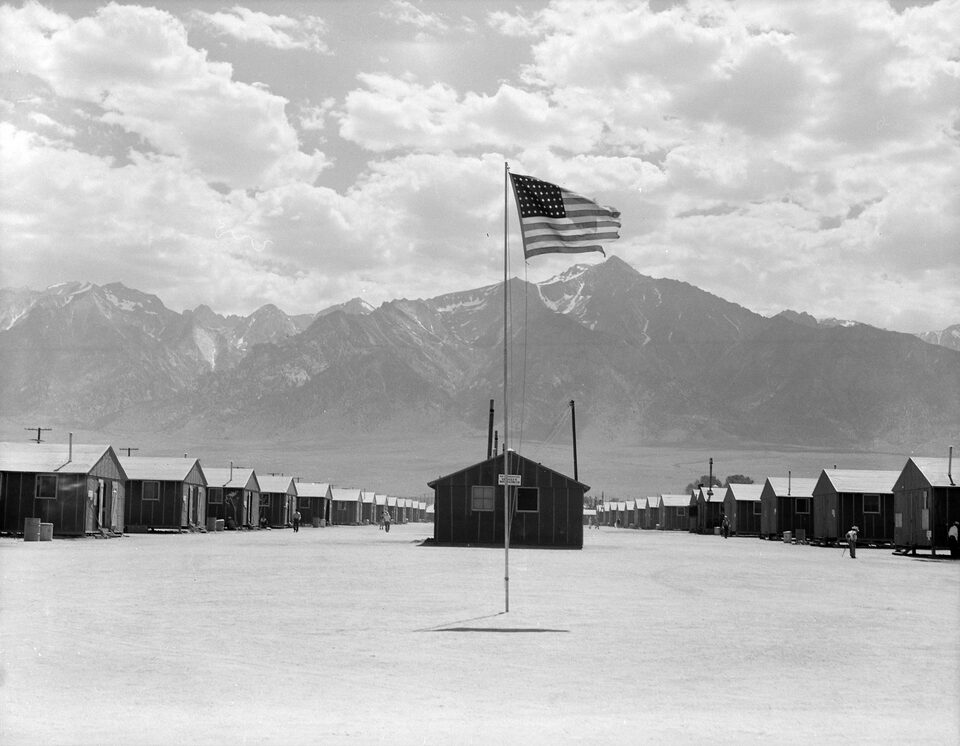by liberal japonicus
As a Japanese-American, I’ve always had an intense interest in the internment of Japanese-Americans in WWII. While I don’t want to be history-splaining to anyone here, there are a lot of wrinkles to it that people who are generally familiar with the internment may not know. A list off the top of my head:
- Japanese ancestry Latin Americans were also interned
- Canada’s internment experience was probably worse
- The no-no boys (with an important note about naming)
- While Japanese on the mainland were interned, Japanese-Americans in Hawai’i, with a few exceptions, were not
- How universities (along with UW and my alma mater) tried to soften the effect of the internment
- (one reason?) Why Omaha and Lincoln went to Harris while the rest of the state went for Trump
- The Manzanar Children’s Village, set up specifically to take Japanese-American orphans
- The mechanism by which Japanese-Americans lost their property
All of this is a preface for this article, How Trump’s Anti-Trans Policies Mirror the WWII Persecution of Japanese Americans. Possibly as enlightening are the comments that try and undermine the point being made. One commenter says ‘The internment of Japanese Americans during WWII, like the lesser-known internment of German Americans during WWI, was based, almost entirely on misplaced, xenophobia-driven concerned about enemies among us in the midst of actual wars. Literally no one cared about their “biology”, just their ethnographic-nationality.’ (emph mine) Unfortunately, the fact that orphans, some of them mixed race, were interned, really undercuts this.
Army officials also sent to Manzanar several Japanese American children who were living with white or Latino foster families. They got the children’s names by combing through federal welfare records, military documents show. from here
I also note that the article uses a Disqus comment system and you can click on the handle to see what other comments the person has made in the system. Just to be clear, I’m not considering this for the site, but I am wondering how identity on the internet interacts with the construction of dialogues like this.


Several decades ago, I read To the Stars: The Autobiography of George Takei, Star Trek’s Mr. Sulu. It was interesting, though I don’t remember much of it now.
The link profiles of thirty people who were prominent or became prominent after their internment.
Japanese American Internment Legacies
Several people on this list are not on the above list.
Notable Japanese Americans Interned During WWII
I’m glad Disqus isn’t being considered. The Lawyers, Guns & Money blog switched to Disqus because handling their large comment volume was beyond the capability of the WordPress built-in system or available plug-ins. A very regular comment is someone asking, “Is it just me, or is Disqus more screwed up than normal today?” From time to time I add a comment there to the effect of, “If I weren’t so lazy, I’d round up some of the commenters who are also retired geeks and we’d write a system to be what Disqus wanted.”
Looking at the Disqus agreement, you retain the ownership of your comments, you give Disqus a license to handle them in order to provide their service. It doesn’t seem like a stretch that they could use them for AI under the guise of giving you better service. I realize that this is probably a losing battle (and it’s not like they can’t scrape these comments) but at least they would have to go thru a few more steps. The whole model is set up to track for ads and allow commenters to keep track of their comments on multiple sites, which just lends itself to big data shenanigans.